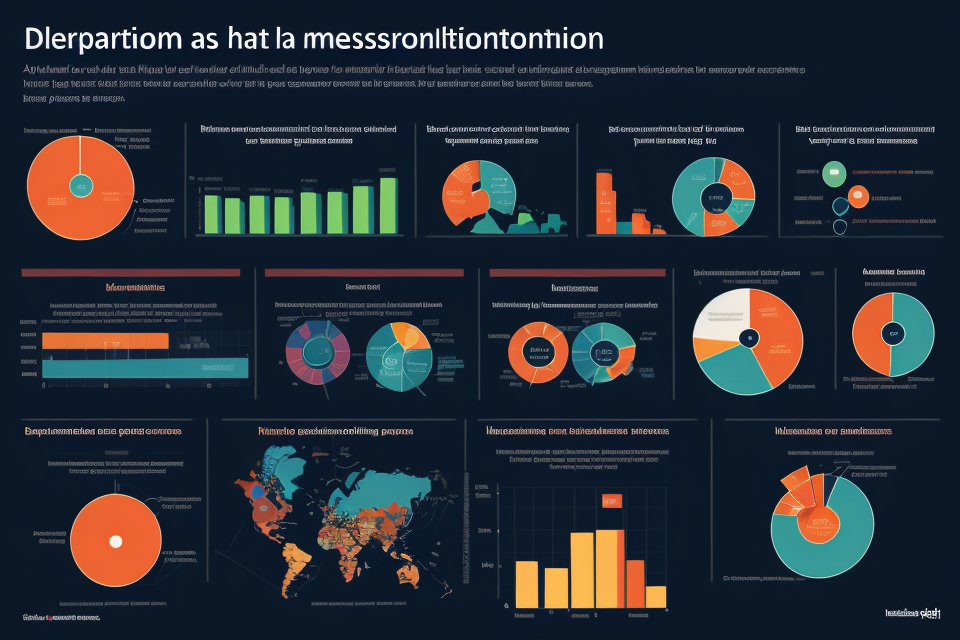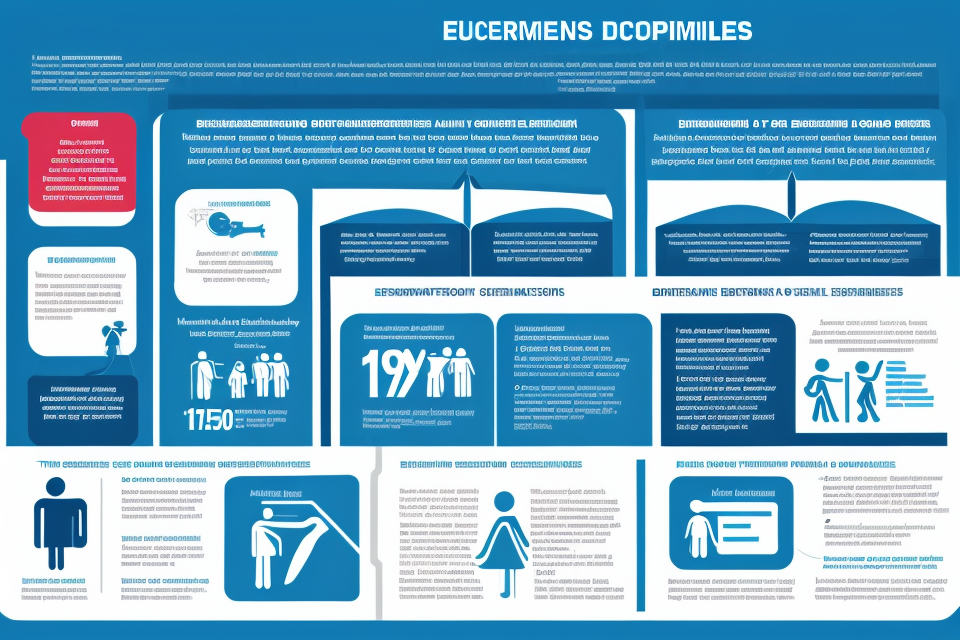
The International Health Regulations (IHR) 2005 is a global legal framework that aims to prevent, protect against, and provide a public health response to the adverse health effects of events. Under the IHR 2005, four diseases require mandatory notification to the World Health Organization (WHO) in all circumstances. These diseases are: cholera, plague, yellow fever, and poliomyelitis. The IHR 2005 recognizes the potential threat these diseases pose to public health and requires immediate reporting to WHO to facilitate a coordinated global response. In this article, we will explore the importance of notification and the significance of these four diseases.
What are the Four Diseases?
H3 heading
The four diseases that require notification to the World Health Organization (WHO) in all circumstances under the International Health Regulations (IHR) 2005 are:
- Smallpox: This highly contagious and often fatal disease is caused by the variola virus. Smallpox is considered one of the most significant biological threats to global health and security, as it is highly infectious and can spread rapidly through close contact with infected individuals. The last known case of smallpox occurred in 1978, and the disease was officially declared eradicated in 1980.
- Polio: Poliomyelitis, commonly known as polio, is a highly infectious disease caused by the poliovirus. It mainly affects children and can result in irreversible paralysis, most commonly in the legs. Although the world is making significant progress in the eradication of polio, outbreaks still occur in some countries. The global eradication of polio is a priority for public health, and its continued presence in some countries remains a significant challenge.
- Covid-19: The COVID-19 pandemic, caused by the SARS-CoV-2 virus, is a global health crisis that has affected millions of people worldwide. The virus spreads easily from person to person through respiratory droplets, and it can cause severe respiratory illness, including pneumonia and acute respiratory distress syndrome. The pandemic has resulted in significant morbidity and mortality, as well as disrupted healthcare systems and economies worldwide.
- Ebola: Ebola virus disease (EVD) is a severe and often fatal hemorrhagic fever caused by the Ebola virus. It is transmitted through close contact with the bodily fluids of infected individuals or animals, such as bats and non-human primates. EVD outbreaks have occurred primarily in sub-Saharan Africa, with the most significant outbreaks occurring in Guinea, Sierra Leone, and Liberia. The disease is highly infectious and has a high mortality rate, with a case fatality rate of up to 90%.
Notification Requirements Under the IHR 2005
Under the International Health Regulations (IHR) 2005, all Member States are required to notify the World Health Organization (WHO) of certain diseases in a timely and effective manner. The four diseases that require notification in all circumstances are:
- Disease 1: The first disease that requires notification in all circumstances is a highly infectious disease that poses a severe threat to public health, such as pandemic influenza or Ebola virus disease.
- Disease 2: The second disease is a disease that is moderately infectious and has the potential to spread internationally, such as severe acute respiratory syndrome (SARS) or measles.
- Disease 3: The third disease is a highly infectious disease that is causing a significant number of deaths, such as polio or meningococcal disease.
- Disease 4: The fourth disease is a disease that is moderately infectious and has the potential to cause international spread, such as dengue fever or cholera.
In all cases, Member States are required to notify the WHO of these diseases as soon as possible, and to provide all relevant information, including the number of cases, the geographic distribution of cases, and the type of disease. The information should be provided in a timely and accurate manner, using the WHO’s standardized reporting forms. The reporting mechanisms may include electronic reporting through the WHO’s Electronic Disease Notification (EDN) system, or through other means as determined by the WHO. The timelines for notification may vary depending on the disease and the circumstances, but in general, Member States are expected to notify the WHO within 24 hours of the detection of a case.
Challenges in Notification
One of the challenges in notification of the four diseases requiring notification to WHO in all circumstances under the IHR 2005 is the lack of resources in some countries. This can make it difficult for these countries to effectively detect, respond to, and report on outbreaks of these diseases. In some cases, this may be due to a lack of funding or technical expertise, while in others it may be due to the remote or hard-to-reach locations of affected communities.
Another challenge is the stigma and discrimination associated with certain diseases, such as HIV/AIDS and Ebola. In some cultures, these diseases are highly stigmatized, which can lead to reluctance by affected individuals to seek treatment or report their illness to authorities. This can make it difficult for public health officials to accurately track the spread of these diseases and respond effectively to outbreaks.
Additionally, cultural and language barriers can also pose challenges in notification of these diseases. In some countries, there may be a lack of understanding about the diseases themselves, or about the importance of reporting cases to international authorities. This can make it difficult for public health officials to effectively communicate with affected communities and gather accurate information about the spread of these diseases.
To overcome these challenges, it is important for countries to work together to build capacity and share resources and expertise. This may include providing funding and technical assistance to support disease surveillance and response efforts in resource-limited settings, as well as raising awareness about the importance of reporting cases of these diseases to international authorities. By working together, it is possible to improve detection and response to outbreaks of these diseases, and to protect public health in countries around the world.
Consequences of Non-Compliance
- Legal implications
- Failure to comply with the International Health Regulations (IHR) 2005 can result in legal consequences for the affected country.
- Countries are obligated to notify the World Health Organization (WHO) of certain diseases in accordance with the IHR 2005, and failure to do so can lead to legal penalties.
- In some cases, this may include the imposition of sanctions or fines.
- Public health consequences
- Non-compliance with the IHR 2005 can have serious public health consequences.
- When countries fail to notify the WHO of diseases such as SARS, Ebola, polio, and yellow fever, it can hinder global efforts to control and prevent the spread of these diseases.
- This can lead to delays in the implementation of necessary public health measures, such as vaccination campaigns or travel restrictions, which can ultimately result in increased disease transmission and higher rates of morbidity and mortality.
- International relations impact
- Non-compliance with the IHR 2005 can also have significant implications for international relations.
- The IHR 2005 is a legally binding agreement that member states have committed to implementing, and failure to do so can erode trust and cooperation among countries.
- Additionally, non-compliance can lead to the perception that a country is not taking the global public health threat seriously, which can damage its reputation and relationships with other countries.
FAQs
1. What are the four diseases requiring notification to WHO in all circumstances under the IHR 2005?
The four diseases requiring notification to WHO in all circumstances under the IHR 2005 are:
* Cholera
* Plague
* Yellow fever
* Poliomyelitis
2. Why are these four diseases considered notifiable diseases under the IHR 2005?
These four diseases are considered notifiable diseases under the IHR 2005 because they are highly infectious and can spread rapidly across borders, posing a significant risk to public health. Cholera, plague, and yellow fever are all caused by bacteria or viruses that can be transmitted through contaminated food, water, or close contact with an infected person. Poliomyelitis is a viral disease that can cause paralysis and is primarily spread through contaminated faeces or saliva.
3. What are the reporting requirements for these four diseases under the IHR 2005?
Under the IHR 2005, all countries are required to report promptly and accurately any events of these four diseases to WHO. This includes providing information on the number of cases, their geographic distribution, and the measures being taken to prevent and control the spread of the disease. Countries are also required to provide specimens and other information necessary for WHO to assess the public health risks posed by the disease and to provide appropriate guidance and support to affected countries.
4. How does WHO respond to reports of these four diseases under the IHR 2005?
When WHO receives reports of these four diseases, it assesses the public health risks posed by the disease and provides appropriate guidance and support to affected countries. This may include providing technical assistance to help countries respond to the outbreak, developing recommendations for controlling the spread of the disease, and coordinating international efforts to address the outbreak. WHO also works to ensure that countries have the necessary tools and resources to prevent and control the spread of these diseases, including vaccines, treatments, and diagnostic tests.

